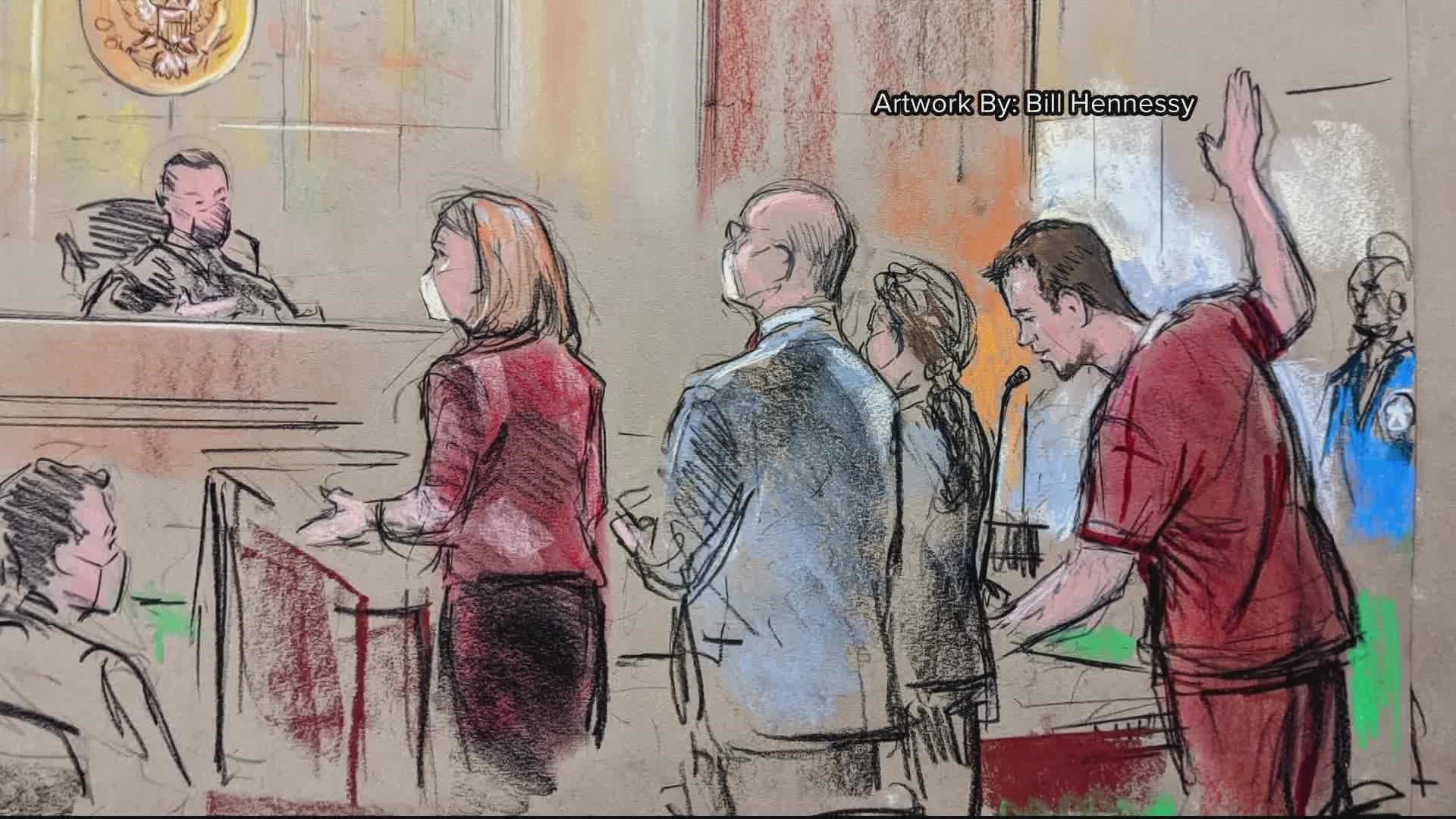WASHINGTON — The man now charged with attempting to assassinate Supreme Court Justice Brett Kavanaugh last month is asking a judge to throw out statements he made to law enforcement the night of his arrest.
In a filing this week, the federal public defender representing Nicholas Roske asked Maryland District Judge Peter J. Messitte to suppress “any and all statements, admissions, and confessions allegedly given by Mr. Roske” the government intends to use against him at trial.
Roske was arrested in the early morning hours on June 8 outside Kavanaugh’s Montgomery County home. According to court documents, U.S. Marshals stationed outside Kavanaugh’s home saw an individual later identified as Roske exit a taxi that had stopped in front of the residence just after 1 a.m. Roske was reportedly wearing black clothing and carrying a backpack and suitcase. When Roske saw the Marshals, they said, he turned and walked down the street.
A short time later, the Montgomery County Emergency Communications Center received a call from someone identifying himself as Roske and saying “he was having suicidal thoughts and had a firearm in his suitcase.” The caller also said he had come from California to kill a specific U.S. Supreme Court justice.
A search of Roske’s suitcase turned up a 9mm Glock 17 pistol with two magazines and ammo, along with a black tactic chest rig and knife, pepper spray, zip ties, a hammer, screwdriver, nail punch, crowbar and duct tape.
After being transported to a nearby police precinct, Roske reportedly agreed to speak to detectives, saying he was upset about the leak of the draft decision in Dobbs v. Jackson Women’s Health Organization case pending before the Supreme Court, which could drastically reduce constitutional protections for abortion. Roske also allegedly said he was concerned that Kavanaugh would vote to loosen gun control laws and referenced the mass shooting at a school in Uvalde, Texas, that left 19 children and two adults dead.
“ROSKE stated that he began thinking about how to give his life a purpose and decided that he would kill the Supreme Court Justice after finding the Justice’s Montgomery County address on the Internet,” prosecutors said.
Roske allegedly also told police he had purchased the Glock pistol and other items to use to break into Kavanaugh’s home to kill the justice and himself.
In audio of Roske’s 911 call obtained by WUSA9, he can be heard making similar comments to an emergency dispatcher. During the call, Roske told the dispatcher he had thoughts about hurting himself and Kavanaugh.
“I’ve been having them for a long time,” Roske said. “I came from California over here to act on them.”
Federal law requires a confession be “voluntarily given” to be admissible, and motions to suppress such statements are common filings. Judges consider a number of factors to determine whether to grant such requests, including whether a defendant was properly read their Miranda Rights, whether they were informed they had the right to an attorney and whether an attorney was present. Defendants can waive those rights, however – as a federal judge ruled a California man did when he confessed to the FBI he’d repeatedly electroshocked former D.C. Police Officer Mike Fanone during the Jan. 6, 2021, Capitol riot.
Roske’s public defender asked Messitte to order a hearing requiring the government to show Roske had been properly informed of his rights before he allegedly told police he’d decided upon killing Kavanaugh. Roske does not currently have a next hearing date scheduled.

